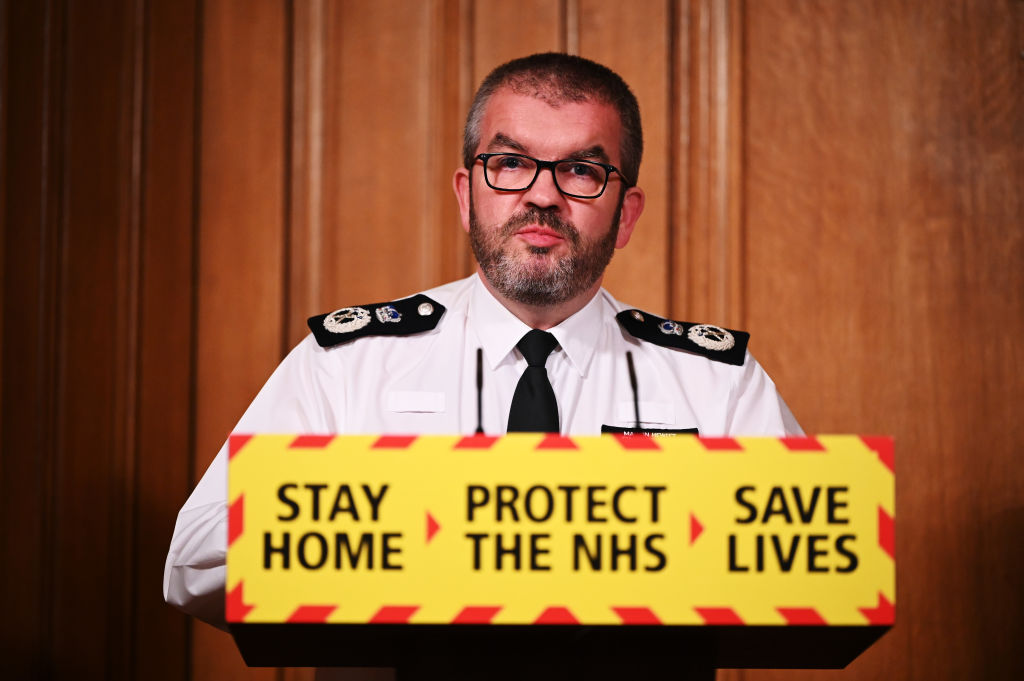The ‘border tsar’ isn’t the official title for Martin Hewitt. The former police chief has been appointed to the new role of ‘Border Security Commander’, but it won’t be long before he ascends to tsardom, given the hype around the job.
The Border Security Command, which Hewitt will lead, was a key part of Labour’s general election manifesto, as part of their plan to ‘smash’ the criminal gangs bringing people across the Channel in small boats. It was one of the first announcements after Labour were elected, with an advert for the post of commander going out within five days. Managing expectations should be top of the list of his priorities, because this is destined to become one of the trickiest assignments in government.
Hewitt is 58. He’s a good fit for the post with extensive experience of the military, law enforcement and working with people at the top levels of government. He trained at Sandhurst and served in Germany, Cyprus and Northern Ireland. Then came a 30-year career in policing, with the Kent constabulary, the Metropolitan force and the National Police Chiefs’ Council (NPCC), which he chaired until 2023.
I first met Hewitt at the Met where he oversaw an inquiry into the death of the MI6 spy Gareth Williams, whose naked body was found in a padlocked holdall in a bathtub. He handled a delicate case with respect and sensitivity. Later, he allowed me access to Scotland Yard’s internal investigations unit for a series of BBC reports – a brave move that other bosses would not have agreed to. At the NPCC his biggest challenge was dealing with Covid, ensuring that police had updated guidance on constantly changing regulations on lockdown, social distancing, face masks and international travel. Police dealt with the pandemic using an approach known as the ‘4 Es’ – engage, explain, encourage and enforce – which Hewitt’s team had devised. He was in near-daily contact with the Home Office and earned the trust of Priti Patel (no mean feat), who was Home Secretary at the time.
Indeed, Hewitt’s ability to get on with people is one of his main assets. He can sometimes be gruff and doesn’t suffer fools gladly, but he’s approachable and open to ideas – all attributes that he will need. This is a job that is less about having daily control of maritime tactics and field operations, and more about getting the Home Office and the various agencies involved in border protection domestically and overseas to work together. Together, they could present a formidable barrier to people traffickers, drug smugglers and illegal immigrants, but there’s far too little coordination at the moment. A leader who can promote closer working between Border Force, Immigration Enforcement, the National Crime Agency and the police forces that patrol Britain’s ports and airports could make a big difference, even without more resources.
He will be judged on how he tackles the gangs cramming migrants into inflatable dinghies
Hewitt should start by making improvements in the Home Office where performance in this area has been woeful. One glance at the last annual report of the chief inspector of borders and immigration shows you where the gaps are. ‘The division between policy and operational delivery is a stark one’, wrote David Neal, before he was sacked in February. ‘Operational activity is often outsourced to subcontractors. Obfuscation and opacity seem to be the norm,’ he said, adding that the department should make more use of outside expertise from organisations such as the British Red Cross and the UNHCR.
Change is also overdue at Border Force. During his inspections, Neal found that it was a ‘breeding ground’ for ‘insider risk’, relied on ‘obsolete’ equipment for examining parcels and was failing to carry out proper security checks on private aircraft. Unless the organisation is restructured, with investment in staff training and equipment, Hewitt will soon discover that reforms will founder.
His role is wide-ranging, but he will be judged on how he tackles the gangs cramming migrants into inflatable dinghies and flimsy boats on the northern French coast. More than 23,000 migrants have made the crossing so far this year, about the same number as at this point in 2023. At least 45 people have died. A cynical view is that Hewitt’s appointment and status will allow ministers to distance themselves from the small boats crisis by outsourcing responsibility. He may acquire the ‘Borders tsar’ label and become the frontman for responding to the latest developments in the Channel.
But the Border Security Commander was a job created by the Labour government and Hewitt was selected by them. They are wedded to the success of the role. He alone cannot be blamed if people keep crossing in their thousands.







Comments